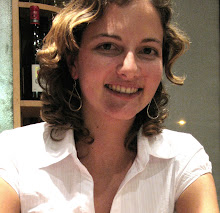
The hazy, deserted streets of Khulna, lined with crumbling colonial arches and peaked gables, are surprisingly chilly in the dead of night. My bicycle rickshaw bumps and rattles through town toward the port, tucked away at the end of a rutted alley past a row of shuttered tea stalls. All I can make out of the boat that will take me to the capital, Dhaka, is an enormous orange wheel. When the order comes to board I make my way across the gangplank, past several dozen motionless figures huddled like refugees under blankets and tarps in the oily grime of the third-class deck. They are my fellow passengers, and they don’t look up.
By 2am, the Rocket is ready to launch and the old 15-foot wheel groans to life.
Contrary to its name, there is nothing speedy about the Rocket riverboat service. The Khulna-Dhaka trip takes around 28 hours, while by bus it can be done in eight. But these Mississippi-style paddlewheels pre-date most of the area’s roads. Built by the British in the dockyards of Calcutta, they have been plying the waters between Dhaka and West Bengal since the 1920s; until the 1980s they ran on steam. First-class passengers can experience the river much as their colonial predecessors did, although today you’re likely to be the only foreigner on board.
This arrangement suits Bangladeshis just fine. They may not be efficient, but boat trips continue to sell out, day after day, year after year. In fact, the riverboat business is booming.
“The people of Bangladesh are used to traveling by boat, all over the country,” explains A.L.M. Kamaluddin, director of the government agency that operates the Rocket. “They live in the river, work in the river, bathe in the river, farm in the river. It’s their livelihood and they are used to it. They lie down to sleep on the deck, and in the morning they arrive at their destination.”
I wake up the next morning, not on the deck, but in my elegant wood-paneled first-class cabin -- complete with a fan, reading lamp (circa 1945) and small sink. I wander sleepily out onto the deserted first-class deck, only to rush back inside for my camera. On either side the shore is slipping past like an impressionist painting, green rice fields and golden sand glowing through the morning mist. From time to time a woman in a bright sari strolls by, a fisherman wades in with his net. Someone on the bank waves. I am enchanted.
The steward, Mr Biswas, appears with my breakfast of fried river fish, omelette, toast and tea served in delicate gold-rimmed china – like all meals on-board, it comes off as a half-forgotten interpretation of British cuisine. Food on the Rocket bears no resemblance to anything else I have ever eaten in Bangladesh. But Mr Biswas beams when I praise the fish, and promises to cook me more for lunch. All day long he hovers around me, deliberate and proprietary in his tidy red uniform.
By mid-day Bangladesh has begun to reclaim the boat. The sound of people singing and clapping floats up from downstairs, and someone has turned on a radio. A fingerless beggar reaches through the gate separating first from third class. I’ve been joined on the deck by a group of bearded Imams trying to turn me toward Allah. As evening falls, wooden canoes glide past on either side, farmers harvesting the water hyacinth that lies on the river like a heavy duvet.
But it isn’t until our first shore-leave that I am struck by what an anachronism the Rocket really is. The rowdy port of Barisal is a carnival of Christmas lights, crowded with street vendors selling curry, fried puri and crispy little nests of fushka. And there, dwarfing our quiet vessel, is the future of riverboat travel: a flock of enormous, brightly lit commercial cruise ships blasting Hindi music across the water.
A full day on the boat slips smoothly by, and before I know it I’m sitting on the darkened deck watching the flickering lights of the shore drift past the railing. The old wood creaks softly with the vibrations of the motor, and the big wheel churns. It strikes me that this doesn’t even feel like transport, certainly not the Bangladeshi variety – no frenetic bus stations, no bone-shattering roads, no suicidal drivers who make you regret having never written a will. A voyage like this can be a holiday in itself, a blissful, occasionally surreal retreat from dry land and everything that comes with it.
But in the end, there isn’t much time to say goodbye. I open my eyes at dawn to find myself thrust abruptly into a chaos of barges, canoes and clanging bells; like Dhaka’s streets, Dhaka’s port is a hive of activity. Canoes swarm hopefully around larger vessels, shuttling people, transporting cargo, angling for a piece of the action. I barely have time to collect myself before I am hustled off the boat and back into modern Bangladesh.
It really does feel like an awakening – as though, as Mr Kamaluddin said, I have spent the past day dreaming on the deck. But this is a country that is waking up and moving on, so off we go.

3 comments:
Amazing Blog!!! Hope you can travel more and write about it!!!
Congratulations...
Wow!! how do i get a gig like your's?
Hilary,
Loved your story about Kara in Dakar. I'm a teacher at the Int'l School of Dakar and film in my free time. If you know how I could track down Kara, who sounds like someone who would be willing to share his life on film, let me know.
surfallday@hotmail.com
(Michael)
Post a Comment